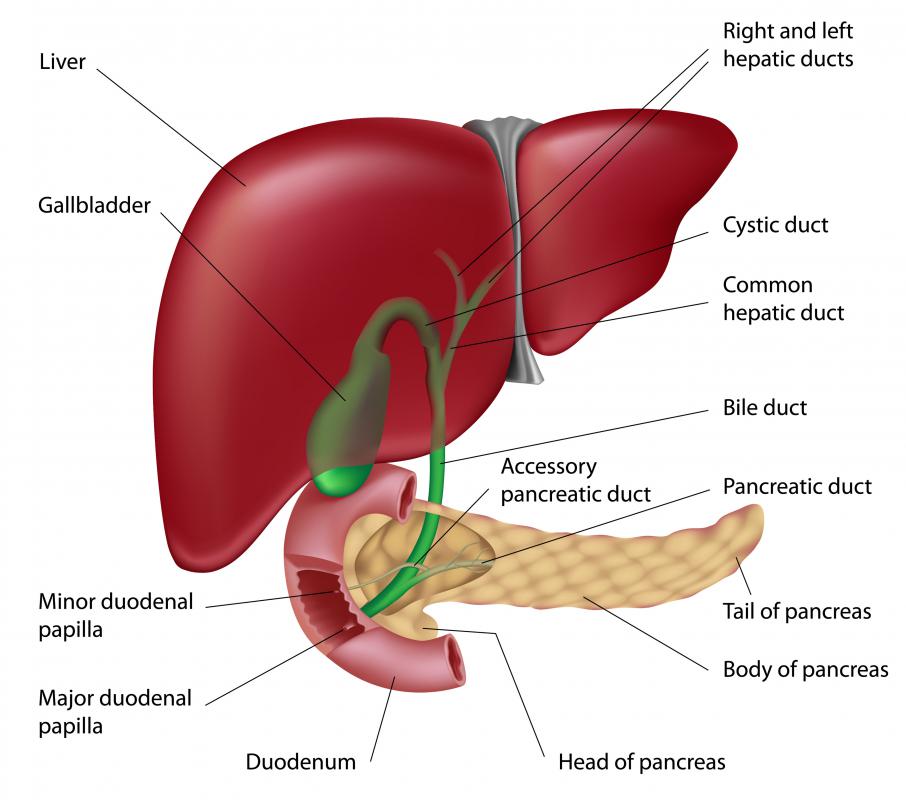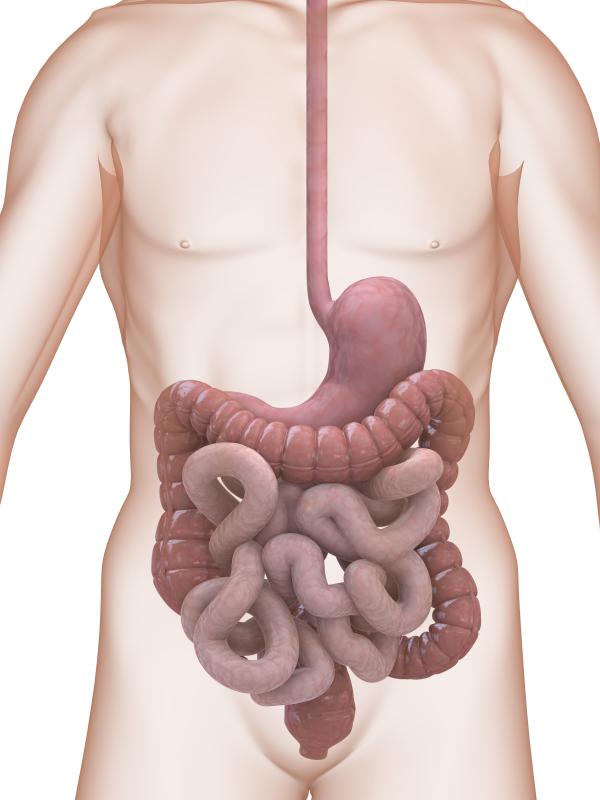At TheHealthBoard, we're committed to delivering accurate, trustworthy information. Our expert-authored content is rigorously fact-checked and sourced from credible authorities. Discover how we uphold the highest standards in providing you with reliable knowledge.
What Is a Digestive Enzyme?
A digestive enzyme helps in the breakdown of food into smaller particles that can be absorbed by the body. Digestive enzymes are found throughout the digestive tract, from the salivary glands, through the stomach to the lower intestine. These enzymes are found in both animals and humans, although they are present in different levels of concentration and strength.
There are four main locations where glands secrete digestive enzymes: The salivary glands in the oral cavity, or mouth; the lining of the stomach; the pancreas; and the cells lining the small intestine.

In the oral cavity, or the mouth, the digestive enzyme is secreted by the salivary glands. These enzymes break down starch into sugar. These first level digestive enzymes are mixed in with saliva and act quickly to start this chemical process in the first stage of digestion.
Within the stomach, there are glands that are responsible for the balance of enzymes responsible for breaking down protein molecules into peptides. The pancreas is responsible for secreting digestive enzymes into the large intestine. The enzymes from the pancreas break down starch into sugar, lipids or fats into fatty acid and glycogen and peptides into amino acids. These chemical reactions must occur within the large intestine in order for the body to absorb these key building blocks for cells throughout the body. The glands throughout the small intestine control the release of enzymes that break down sucrose into glucose and fructose, both sugars which are required by the body.

Without the correct and timely release of digestive enzymes, the body would not be able to convert food into materials that can be absorbed through the intestine walls and into the blood stream. The nutritional value from the food would not be absorbed before the food left the body, resulting in serious illness. Each of the glands that secrete digestive enzymes plays a critical role in the maintenance of health, proper digestion and absorption of food.

Symptoms of problems with the release of a digestive enzyme include recurring digestive upset, rapid weight loss and overall fatigue. If you are experiencing any of these symptoms on a recurring basis, consult your doctor. There are several laboratory tests that can quickly determine if the issue is related to the release of digestive enzymes and treatment can begin immediately.
AS FEATURED ON:
AS FEATURED ON:













Discussion Comments
I just want to know where they can be found in the body. For example, can they be found in the salivary glands?
the duodenum is still the small intestine!
Post your comments